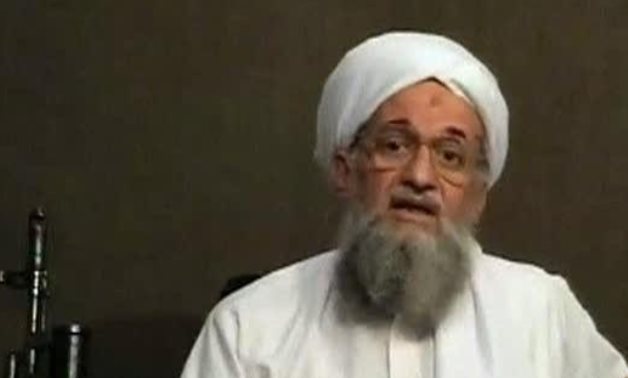
Al Qaeda's Ayman al-Zawahri speaks from an unknown location, in this still image taken from video uploaded on a social media website June 8, 2011. REUTERS/Social Media Website via Reuters TV
CAIRO – 13 October 2020: Between June 30, 2013 and July 3, 2013, more than 30 million Egyptians took to the streets to overthrow the Muslim Brotherhood regime that ruled for a year.
The response of the Obama administration was a hostile stance on the Egyptian people's choice, and partially freezing the annual U.S. military aid worth $1.2 billion in a time where the country was going through a terrorist wave, and North Sinai was infested by foreign terrorists who had infiltrated borders through tunnels dug from Gaza Strip. In addition, it held up 10 Apache attack helicopters that were agreed upon with Egypt in 2009, and that the North African state had already fully paid for.
The emails of former U.S. Secretary of State Hillary Clinton that have been recently unclassified showed she received an email from American Journalist Sidney Stone Blumenthal dating back to April 7, 2011 whereas he stated clearly, according to a source close to the group's leadership, that the Muslim Brotherhood has contacts with Al Qaeda. The email also added that the group intended to restrict such ties so that the Supreme Council of Armed Forces (SCAF) would not crack down on them, and that the people do not refute their presence on the political scene.
It is noted that the current chief of Al Qaeda, Ayman al-Zawahri, was a member of the Muslim Brotherhood in Egypt.
Here is an excerpt of the email that mentioned former Commander-in-Chief of the Egyptian Armed Forces and SCAF Chair Mohamed Hussein Tantawy, former Spokesperson of the Muslim Brotherhood in Alexandria Sobhy Saleh, and late Supreme Guide of the brotherhood Mohamed Badie:
"At the same time, Tantawi has instructed the commanders of military intelligence to monitor Soleh's activities, as well as those of the more conservative MB figures, particularly their leader and Supreme Guide, Mohammed Badie. The main concern of the SCAF leaders is that the MB will begin working with more violent Islamist groups, including the various al Qa'ida affiliates. Egyptian military intelligence is aware of the fact that these contacts exist, but believe that the MB, under the influence of Soleh and the other moderates, is carefully controlling its contacts with these radical/terrorist groups, in an effort to avoid providing the military with an excuse to move against them.
(Source Comment: A particularly sensitive source with access to the highest levels of the MB, including Badie, stated in private that the relationship between the MB, al Qa'ida, and other radical groups is complicated, and at this time even the conservative members of the MB believe they must control these contacts in an effort to avoid losing the unique opportunity to gain a real voice in Egyptian politics. These sources also note that the MB leadership realizes that the presence of foreign firms is important to Egypt's economic future, and they do not want any uncontrolled terrorist activity frightening foreign investors. This is another point where the MB and the SCAF share a common interest.)"
Comments
Leave a Comment